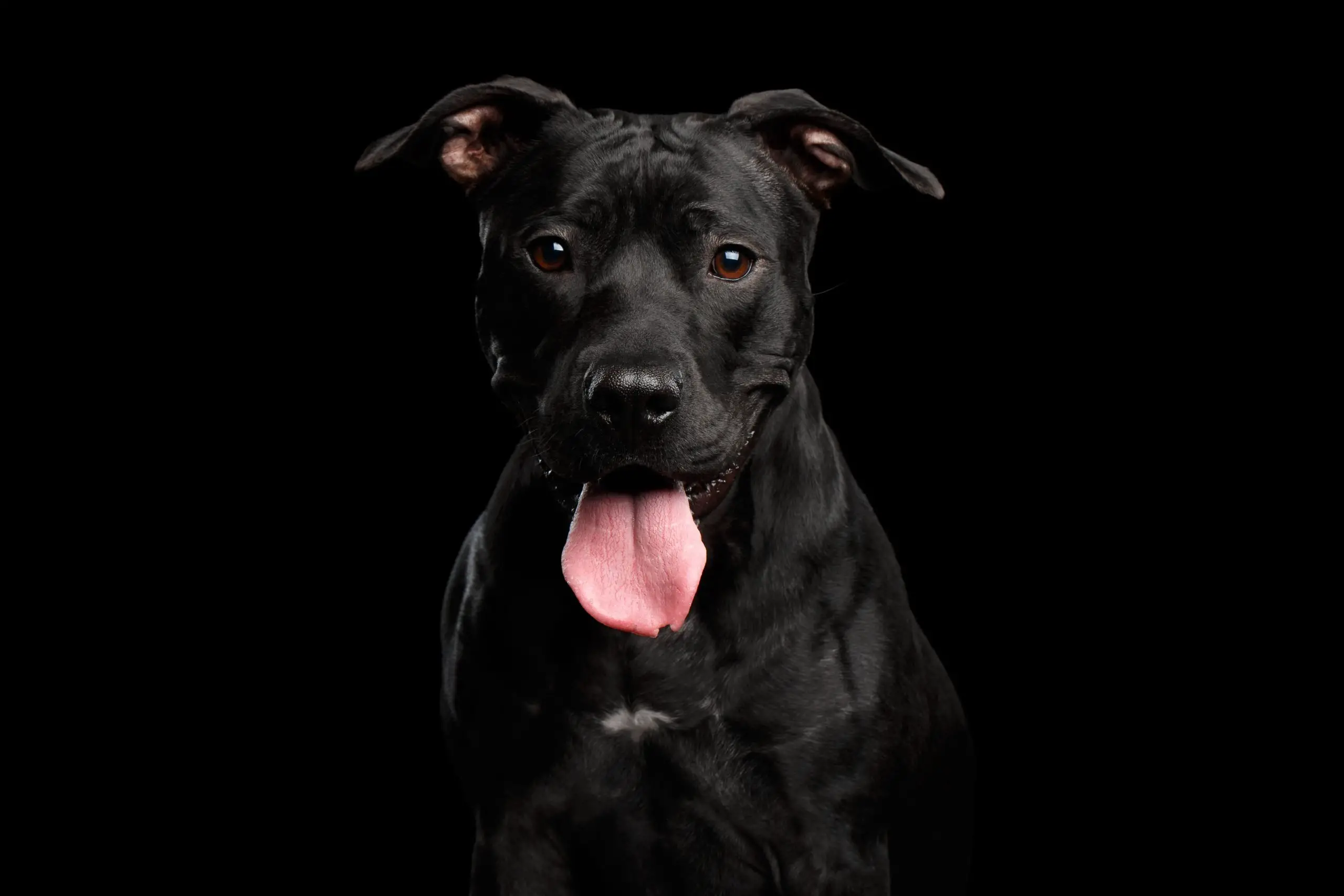
Let’s take a walk through the intriguing world of the Black Pit Bull, a dog that’s as captivating as a moonless night sky. Their glossy, jet-black coats and soulful eyes draw you in, making you wonder what stories they might tell if they could speak.
I’ve been a dog lover my whole life, but there’s something about Black Pit Bulls that’s particularly special. Maybe it’s their undeniable presence or the way they combine strength with sweetness. It’s hard not to be intrigued.
So, come along with me. We’re about to peel back the layers of myth and misconception and get to know the real Black Pit Bull. Trust me, this is a journey worth taking, filled with surprising truths and heartwarming tales. Ready to see what makes these dogs so unforgettable? Let’s jump in.
TABLE OF CONTENTS
- Black Pit Bull Quick Breed Summary
- Origin and Purpose: A Primer on Black Pit Bulls
- Black Pit Bull Physical Appearance
- Black Pit Bull Personality and Temperament
- Black Pit Bull Care
- Common Health Problems Among Black Pit Bulls
- Black Pit Bull Training
- Costs of Owning a Black Pit Bull
- FAQs about Black Pit Bulls
- So, Is a Black Pit Bull Right for You?
Black Pit Bull Quick Breed Summary
| Common Names | Black pit bull, black pitty, black bully, black Staffy |
| Breed Group | Terrier |
| Size | Medium |
| Height | 15 to 21 inches |
| Weight | 30 to 70 pounds |
| Colors | Black |
| Coat | Single coat, short length |
| Life expectancy | 12 to 14 years |
| Temperament | Loyal, playful, energetic, intelligent |
| Shedding Tendency | Minimal |
| Barking Tendency | Moderate, usually when feeling threatened, protective, or bored |
| Cost | $500–$2,000 |
Origin and Purpose: A Primer on Black Pit Bulls
The story of the Black Pit Bull starts with the broader tale of the Pit Bull breed itself, a tapestry woven from various dog breeds across the UK and Ireland. Initially bred from Old English Bulldogs and terriers, these dogs combined the Bulldog’s strength and the terrier’s agility and tenacity. The result was a breed known for its courage, determination, and unmatched loyalty.
Journey to America
As these dogs crossed the Atlantic, American settlers saw their potential not just in blood sports (a dark chapter in canine history) but also as farm dogs, hunters, and guardians. The Pit Bull’s versatility shone through, adapting from the gritty arenas of the past to the diverse roles required in a burgeoning America.
The Emergence of the Black Coat
Black Pit Bulls, with their striking ebony coats, are not a separate breed but a color variation within the Pit Bull family. This mesmerizing black hue comes from a genetic trait that’s just as likely to appear as any other coat color. Their color might be unique, but these Black Pit Bulls share the same history, traits, and heart as their Pit Bull brethren.
A Dog for All Seasons
Originally, Pit Bulls served multiple purposes, from guarding homesteads to herding livestock. Their strength made them invaluable on farms, while their gentle nature made them beloved family members. The Black Pit Bull, with its imposing yet sleek appearance, carries on this legacy of versatility and affection, proving that they’re more than just their color.
Beyond the Myths
It’s essential to move past the stereotypes and understand the Black Pit Bull for what it truly is: a testament to the breed’s enduring spirit and adaptability. Like all Pit Bulls, the black-coated variant thrives on companionship, training, and love, embodying the true essence of what it means to be a loyal and devoted canine companion.
Black Pit Bull Physical Appearance
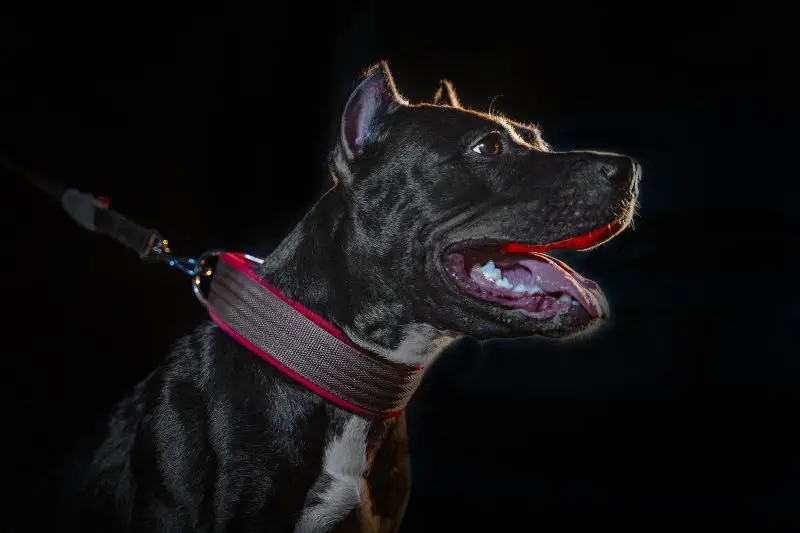
Let’s step into the world of the Black Pit Bull, a breed that commands attention not just for its striking coat but for its remarkable physical attributes and spirited personality.
Coat and Color
At the heart of the Black Pit Bull’s allure is its single-coated, short, smooth fur, predominantly in solid black, thanks to dominant genes that make other color markings a rarity.
When you spot a Black Pit Bull, the first thing you’ll notice is its deep, ebony coat, often so dark that it gleams under the sun. Most of these dogs boast a solid black color, but occasionally, you’ll come across the “tuxedo” Pit Bull, a rare gem distinguished by elegant white markings on its chest, reminiscent of a finely tailored suit.
These dogs are the epitome of elegance with minimal shedding, requiring only the occasional bath and brush to maintain their sleek appearance. It’s this low-maintenance yet stunning coat that makes them stand out in the canine world.
Size Matters
When it comes to stature, Black Pit Bulls fit snugly into the medium-sized dog category, but with a twist. They stand proud at the withers, ranging from 15 to 21 inches tall, and tip the scales at a muscular 30 to 70 pounds. Their stocky, robust frames make them appear heavier than other dogs of similar size, showcasing their strength and agility.
It’s fascinating how their size and weight can vary, influenced by genetics, diet, activity levels, and specific breed nuances. Among them, the American Pit Bull Terrier tends to be the largest, while the Staffordshire Bull Terrier often represents the smaller end of the scale.
Head and Face: The Expressive Core
Every Black Pit Bull carries a distinctive look, marked by a square-shaped head, almond-shaped eyes that sparkle with intelligence, and a long muzzle that complements their thoughtful gaze.
Their thick necks support a head that often has a low forehead, giving it a unique wedge-shaped profile.
The ears, typically rose-shaped unless altered, add to their expressive nature, while their fleshy noses seem to sniff out every adventure.
Black Pit Bull Personality and Temperament
These dogs, with their glossy ebony coats and soulful eyes, bring a depth of character to the table that’s as rich and multifaceted as their appearance.
Loyal Companions
If there’s one thing I’ve learned from being around Black Pit Bulls, it’s that their loyalty knows no bounds. These dogs attach deeply to their families, forming bonds that are as strong as steel. They’re the kind of dogs that will stick by your side through thick and thin, offering comfort with a nuzzle or a gentle nudge of their nose when you need it most. It’s this unwavering loyalty that makes them such cherished members of any household.
But it’s not just about being loyal; it’s about how they show it. Black Pit Bulls have a way of tuning into the emotions of their humans, offering a kind of empathy that’s rare in the animal kingdom. Whether you’re lounging on the couch after a long day or out in the backyard soaking up the sun, you can bet your Black Pit Bull will be right there with you, content just to be in your presence.
Playful and Energetic
Don’t let their muscular build fool you; these dogs are big softies at heart, with an infectious energy and zest for life. Black Pit Bulls are the life of the party, always ready for a game of fetch or a playful wrestle in the grass. Their enthusiasm is contagious, brightening up even the gloomiest of days. And when they play, they put their whole heart into it, displaying a joyous abandon that’s an absolute delight to witness.
This playful character extends to their interactions with other pets and children, too. With proper socialization, Black Pit Bulls can be gentle giants, showcasing patience and gentleness that belies their powerful physique. Watching them interact with kids, you’ll see a softer side to these dogs, as they intuitively know to tone down their strength and engage in gentle play.
Intelligent and Trainable
Another aspect of the Black Pit Bull’s temperament that’s truly impressive is its intelligence. These dogs are sharp, quick learners, making them a dream to train. Whether it’s basic obedience commands or more complex tricks, Black Pit Bulls pick up on cues with surprising speed. Their eagerness to please, combined with their cognitive abilities, means they thrive on mental stimulation and enjoy the challenge of training sessions.
But it’s not just about learning commands; their intelligence also shines through in their problem-solving skills. Give a Black Pit Bull a puzzle toy, and you’ll see its gears turning, figuring out the most efficient way to get to that tasty treat. It’s this blend of smarts and eagerness to engage that makes training and living with them such a rewarding experience.
Black Pit Bull Care
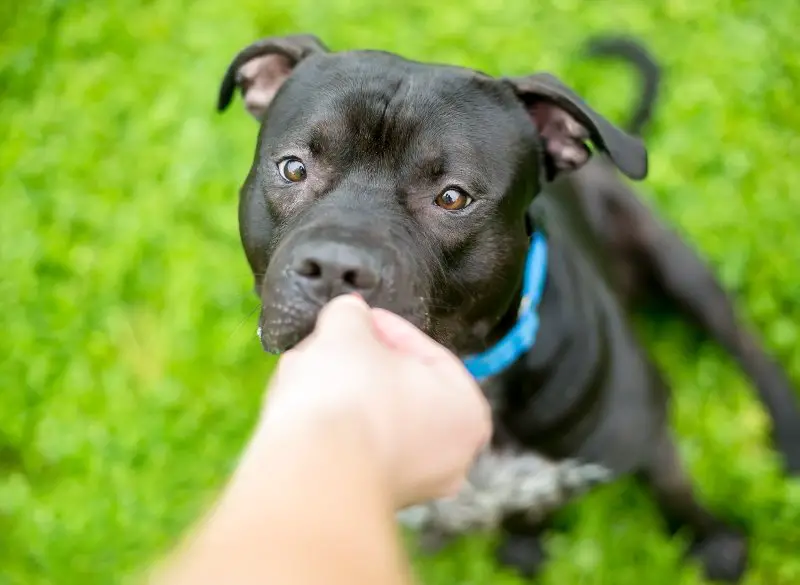
As someone lucky enough to share my days with one of these magnificent creatures, I’ve learned that the right care can truly bring out the best in them. From the food they eat to the games we play, every choice we make shapes their health, happiness, and well-being.
Nutrition and Diet
Feeding a Black Pit Bull is like fueling a high-performance engine; you want to make sure you’re giving them the best to keep them running smoothly. These dogs have a lot of muscle to maintain, so a diet rich in high-quality protein is a must. But it’s not just about piling on the meat; balance is key. I always make sure to include a mix of fruits and vegetables for those essential vitamins and minerals, keeping their meals as colorful as their personalities.
And let’s talk about portion control. Black Pit Bulls are enthusiastic eaters, to say the least. It’s tempting to give in to those pleading eyes, but maintaining a healthy weight is crucial for their overall health. I’ve found that sticking to a feeding schedule and measuring out meals helps keep my buddy in tip-top shape, ready for whatever adventure comes our way.
I suggest giving them about 1 pound, or 2 cups, of food per day. The dog’s food should be split into three or four separate meals to prevent overeating.
Exercise and Playtime
To say Black Pit Bulls are energetic would be an understatement. These dogs are like furry bundles of dynamite, ready to explode with energy at a moment’s notice.
Regular exercise is non-negotiable; it keeps them fit and prevents boredom from setting in. Black pit bulls need between 45 minutes and 2 hours of exercise per day, including walks and playtime. Whether it’s a long walk, a game of fetch, or a run in the park, make sure that a Black Pit Bull gets plenty of time to stretch those legs and burn off some steam.
But it’s not just about physical exercise; mental stimulation is just as important. Consider incorporating interactive toys and training sessions into their routine. It’s amazing to see the wheels turning in their heads as they solve a puzzle or master a new trick. Keeping their minds sharp is a big part of keeping them happy.
Grooming and Care
Despite their short coats, Black Pit Bulls do require some grooming to keep them looking their best. Luckily, it’s not a time-consuming task. A weekly brushing is usually enough to keep their coat shiny and reduce shedding.
And baths? Only when necessary. These dogs have a knack for keeping themselves pretty clean, so overbathing can do more harm than good by stripping their coat of natural oils.
When it comes to their nails, regular trims are important to prevent discomfort and potential issues with walking. And let’s not forget those ears and teeth; a quick check and clean can go a long way in preventing infections and dental problems.
Common Health Problems Among Black Pit Bulls
Caring for a Black Pit Bull involves understanding and managing the breed-specific health challenges they may encounter. By being informed, we can provide the best care possible for our furry friends.
Hip and Elbow Dysplasia
Hip and elbow dysplasia are common in larger breeds like Black Pit Bulls and involve the malformation of the hip or elbow joints, leading to arthritis and pain. This can significantly impact their quality of life, causing symptoms such as limping, difficulty standing up or lying down, reluctance to engage in exercise, and noticeable discomfort after physical activity.
- Keep your dog at a healthy weight to reduce pressure on the joints.
- Incorporate joint supplements like glucosamine and chondroitin into their diet.
- Opt for gentle exercises that don’t strain the joints, such as swimming.
- Explore pain management options with your vet, including medications and alternative therapies.
Hyperthyroidism
Hyperthyroidism is a less common but significant condition where the thyroid gland produces too much thyroid hormone, leading to a range of symptoms including weight loss despite an increased appetite, excessive thirst, increased urination, hyperactivity, and changes in coat quality. This hormonal imbalance can affect overall health and energy levels.
- Adhere to a nutritional plan tailored by your veterinarian.
- Administer all medications precisely as prescribed to manage thyroid levels.
- Regular veterinary check-ups to monitor thyroid function and adjust treatment as necessary.
- Keep a consistent routine to help stabilize your dog’s metabolism.
Retinal Dysplasia
Retinal dysplasia in Black Pit Bulls involves the abnormal development of the retina from birth, which can lead to folds or rosettes in the retina and potentially partial or complete blindness. Symptoms might not be immediately apparent but can include bumping into objects, reluctance to go into dark or unfamiliar spaces, and noticeable changes in eye appearance.
- Schedule regular visits with a veterinary ophthalmologist to assess vision changes.
- Maintain a consistent environment to help your dog navigate despite vision loss.
- Use sensory-rich toys that produce sounds or scents to stimulate other senses.
- Discuss with your vet any advanced treatments or surgeries that might help.
Skin Allergies
Skin allergies are particularly prevalent in Pit Bulls and can cause a great deal of discomfort. Allergens such as certain foods, pollen, dust mites, and flea saliva can trigger allergic reactions, resulting in itchy skin, rashes, and hair loss. Managing allergies is crucial for maintaining your dog’s comfort and health.
- Work with your vet to identify and avoid known allergens.
- Regular baths with hypoallergenic products can soothe irritated skin.
- Medications, including antihistamines and corticosteroids, can control severe symptoms.
- Omega-3 supplements can improve skin health and reduce inflammatory responses.
Cardiac Issues
Heart problems, including congenital heart defects and dilated cardiomyopathy, are seen in Black Pit Bulls. These conditions can lead to reduced heart function, affecting your dog’s ability to exercise and leading to symptoms such as coughing, lethargy, and difficulty breathing.
- Ensure your dog undergoes regular cardiac evaluations.
- Follow your vet’s guidance regarding medications to support heart function.
- Limit strenuous activities that could overexert your dog’s heart.
- Monitor for any signs of worsening heart disease and report them to your vet promptly.
Black Pit Bull Training
Training Black Pit Bulls, or any dog for that matter, is not just about teaching them commands; it’s about building a bond based on mutual respect and understanding. With their keen intelligence and eagerness to please, Black Pit Bulls can be delightful students.
Start Early and Be Consistent
The key to training any dog, especially a spirited breed like the Black Pit Bull, is to start early. Puppyhood is the golden period for laying down the basics. But it’s not just about starting early; consistency is crucial. Dogs thrive on routine and clear expectations. Use consistent commands and rewards to help your Black Pit Bull understand what you’re asking of them. This consistency provides a sense of security and makes the training process smoother.
Positive Reinforcement is Key
Black Pit Bulls, like all dogs, respond best to positive reinforcement. This means rewarding desired behaviors with treats, praise, or playtime, which encourages them to repeat those behaviors. Negative or punitive methods can lead to fear and mistrust, damaging your relationship with your dog. Focus on what they’re doing right, not on the mistakes, and you’ll see faster and more lasting results.
Socialization is Crucial
Socialization is an essential part of training that often gets overlooked. Exposing your Black Pit Bull to different people, animals, environments, and situations from a young age can help them become well-adjusted adults. Proper socialization reduces fear and aggression, making your dog more confident and easier to manage in various situations. Remember, socialization is an ongoing process, not just a one-time task.
Focus on Basic Commands First
Before you move on to more complex tricks or behaviors, make sure your Black Pit Bull has mastered the basics. Commands like “sit,” “stay,” “come,” and “down” are foundational and can be built upon for more advanced training. These basic commands not only improve your dog’s obedience but also enhance their safety in everyday situations.
Exercise and Mental Stimulation
Training isn’t just about formal sessions; it’s also about providing enough physical exercise and mental stimulation. Black Pit Bulls are energetic and intelligent dogs that need regular physical activity and mental challenges to stay happy and balanced. Integrating training into playtime and walks can make learning more natural and fun for your dog.
Be Patient and Keep Training Sessions Short
Patience is your best friend when training a Black Pit Bull. They may be quick learners, but every dog has its own pace. Keep training sessions short and sweet to maintain their attention and enthusiasm. A tired or bored dog won’t be an effective learner, so it’s better to end on a high note with a short, successful session than to push too hard and frustrate both of you.
Seek Professional Help if Needed
Don’t be afraid to seek professional help if you encounter training challenges that you’re not equipped to handle. A certified dog trainer or behaviorist can provide guidance tailored to your dog’s needs, helping you overcome hurdles and strengthen your bond with your Black Pit Bull.
Costs of Owning a Black Pit Bull
Like any pet, owning a Black Pit Bull comes with its financial responsibilities. From the initial adoption or purchase price to ongoing care, it’s important to understand the costs involved to ensure you can provide the best for your four-legged friend. Here’s a breakdown of what you can expect in terms of expenses.
Initial Costs
- Adoption/Purchase Fee: Adopting a Black Pit Bull from a shelter is generally less expensive than purchasing from a breeder. Adoption fees can range from $50 to $200, while purchasing from a reputable breeder may cost anywhere from $500 to $2,000, depending on the pedigree and other factors.
- Initial Veterinary Care: Your new companion will need a veterinary check-up, vaccinations, deworming, and possibly spaying/neutering. These initial medical costs can add up to $200-$500.
- Supplies: Essential supplies include a collar, leash, crate, bed, food and water bowls, and toys. The initial setup for your Black Pit Bull can cost between $100 and $300.
Ongoing Costs
- Food and Treats: High-quality dog food is crucial for your Black Pit Bull’s health. Depending on the brand and your dog’s size, expect to spend $30-$70 per month on food and treats.
- Routine Veterinary Care: Annual check-ups, vaccinations, and preventative medications for fleas, ticks, and heartworms are necessary. These can total $200-$500 yearly.
- Training: Whether you opt for professional training classes or invest in training materials to use at home, costs can vary widely. Group classes might range from $50 to $150 per session, while private training can be significantly more.
- Grooming: Despite their short coats, Black Pit Bulls still require regular grooming, including nail trims and baths. If you choose professional grooming services, this could cost around $30-$60 per visit, though many owners manage grooming at home.
- Insurance: Pet insurance can help cover unexpected medical expenses and is worth considering. Premiums can vary widely but expect to spend anywhere from $20 to $60 per month, depending on the coverage level.
Unexpected Costs
- Emergency Veterinary Care: Accidents and illnesses can happen, and emergency vet visits can be costly, ranging from a few hundred to several thousand dollars.
- Behavioral or Health Issues: Specialized treatments for behavioral issues or chronic health conditions can add to your expenses.
- Replacement Supplies and Toys: Dogs can be rough on their belongings, so you may need to replace beds, toys, and other supplies periodically.
FAQs about Black Pit Bulls
How long do Black Pit Bulls live?
Black Pit Bulls typically enjoy a lifespan of 12 to 14 years. With proper care, regular veterinary check-ups, and a healthy lifestyle, they can be your loyal companion for many years.
Do Black Pit Bulls bark a lot?
Black Pit Bulls are not known for excessive barking. They may bark to alert their owners of something unusual, but they’re generally not considered noisy dogs.
Are Black Pit Bulls good with children?
Yes, Black Pit Bulls can be great with children. They are known for their loyalty and affection. Proper socialization and training, along with supervised interactions, are important for harmonious relationships.
Can Black Pit Bulls live with other pets?
Black Pit Bulls can live harmoniously with other pets, especially if raised together from a young age. Proper introductions and socialization are key to fostering positive relationships between pets.
Are Black Pit Bulls aggressive?
No, Black Pit Bulls are not inherently aggressive. Like any breed, their temperament is influenced by genetics, upbringing, and training. With proper socialization and care, they are loving and gentle dogs.
Is it hard to train a Black Pit Bull?
Not at all. Black Pit Bulls are intelligent and eager to please, making them quite trainable. Consistency, positive reinforcement, and patience are key to successful training.
Do Black Pit Bulls require a lot of exercise?
Yes, Black Pit Bulls are energetic and require regular exercise to maintain their health and happiness. Daily walks, playtime, and mental stimulation are important for their well-being.
So, Is a Black Pit Bull Right for You?
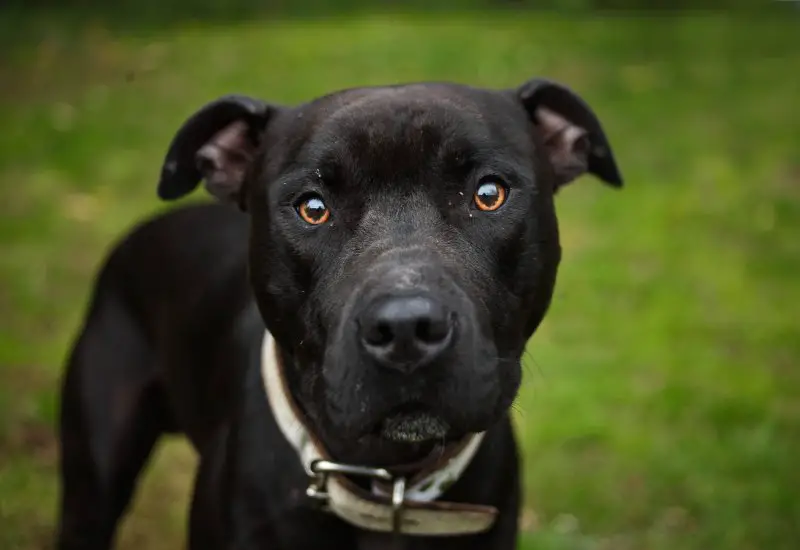
The Black Pit Bull, with its striking ebony coat and muscular build, stands as a testament to the beauty and resilience of the Pit Bull breed. Known for their loyalty, intelligence, and playful spirit, these dogs bring a unique blend of energy and affection to the lives of their owners. From their history as versatile working dogs to their modern role as beloved family pets, Black Pit Bulls embody a rich legacy that’s as captivating as their appearance.
Black Pit Bulls Are Suitable For
- Active Individuals or Families: If you love to spend time outdoors and are looking for a companion to join in on your adventures, a Black Pitty could be a great fit. Their energy and enthusiasm for life make them perfect partners for active lifestyles.
- Experienced Dog Owners: Those who have experience with dogs and understand the importance of training, socialization, and firm, loving leadership will find a rewarding companion in a Black Pit Bull.
- Homes with Space: Black Pit Bulls thrive in environments where they have room to play and explore. A home with a secure, spacious backyard can be ideal for their physical and mental well-being.
Black Pit Bulls Are NOT Suitable For
- First-Time Dog Owners: Without experience in training and handling dogs, first-time owners might find the strength and energy of Black Pitties challenging to manage.
- Busy or Absentee Owners: If you have a demanding schedule or are away from home frequently, a Black Pit Bull might not be the best choice. They require time, attention, and interaction to stay happy and healthy.
- Sedentary Lifestyles: If you prefer a more laid-back lifestyle with minimal physical activity, a Black Pit Bull’s high energy levels might be overwhelming.

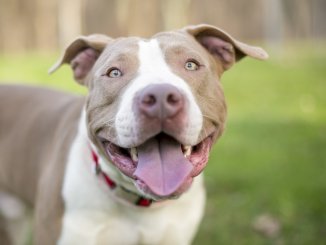
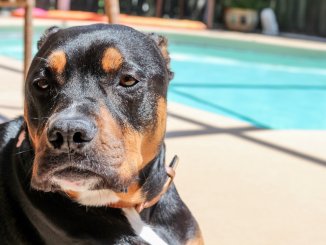
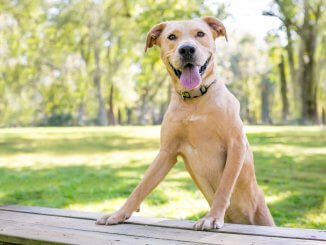
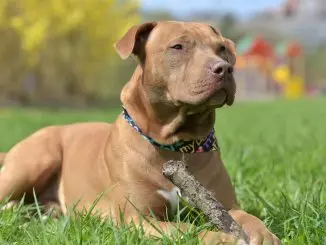

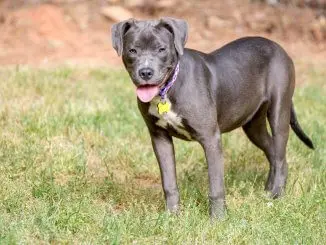

Be the first to comment